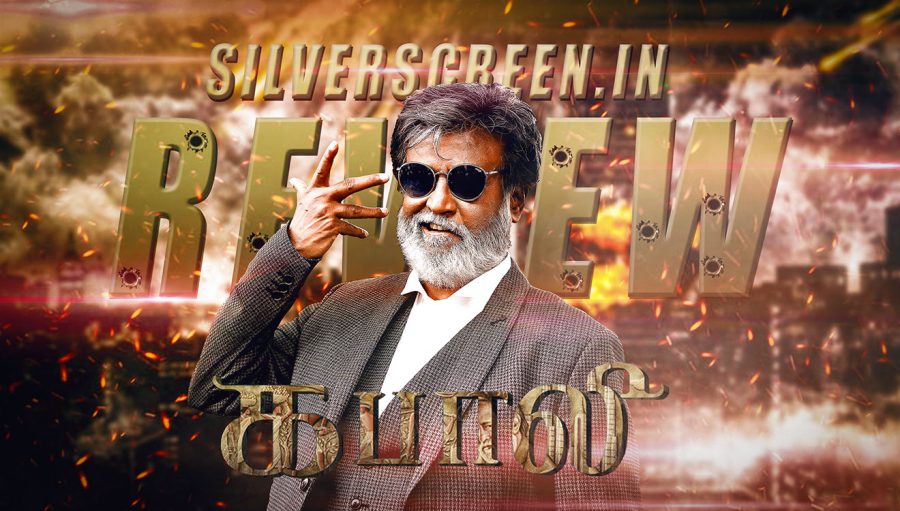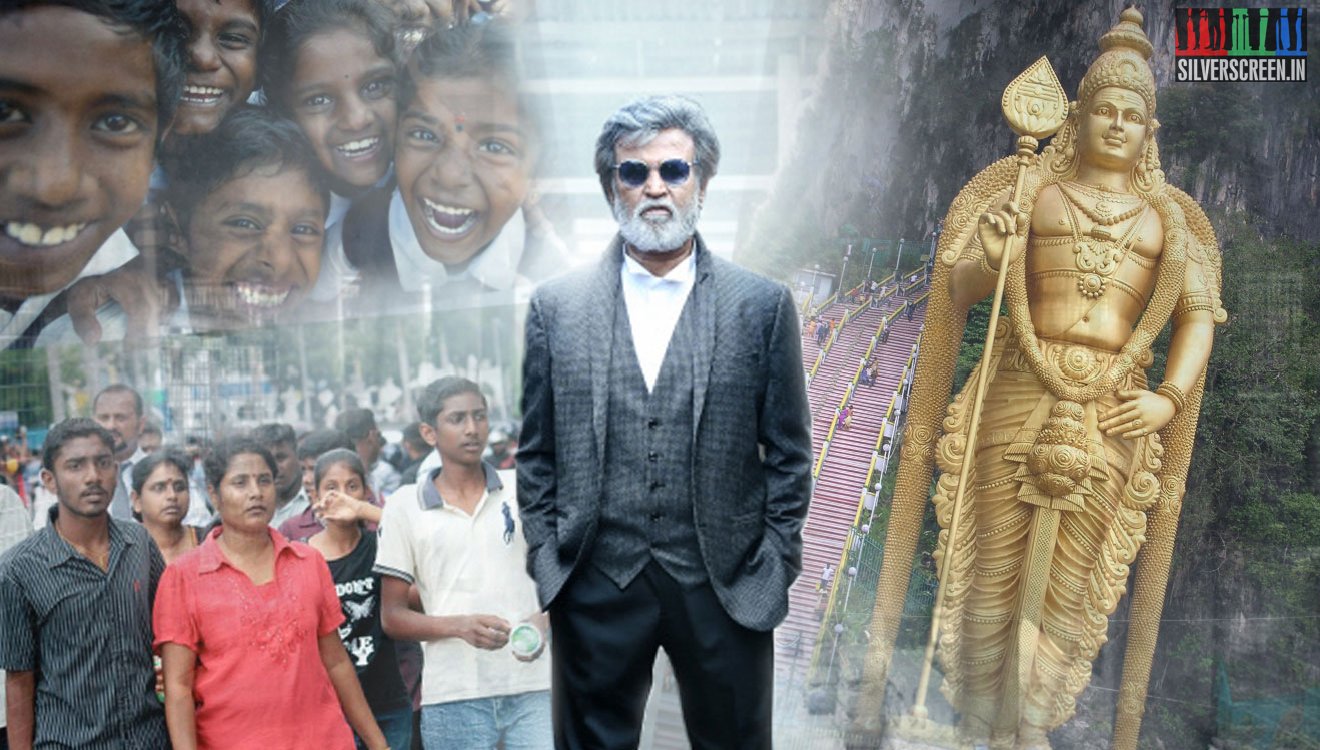Pa Ranjith’s Kabali opens with a parole hearing. Cops are seated around a big, round table. One cop puts up a Powerpoint presentation and describes the backstory to the other cops. In Malay.
There are a few gangsters, the slides tell us. The bad Tamil guy and the bad Chinese guy killed the pregnant wife of the good Tamil guy and sent him to jail.
Only powerpoint slides so far. A lot of talking. And a table.
From this awfully executed first scene, Pa Ranjith, writer and director, magically expects the audience to start hating the bad guys and love the good guy.
Then he cuts to a shot of the good guy in jail. Rajinikanth. Reading My Father Baliah. We realise that we always loved him, so sympathising with him is not going to be a problem.
If there was a motif for Kabali, it is this. Ranjith hams through his hurriedly developed screenplay. Rajinikanth the star comes to his rescue.
*****
Kabali is out of jail. He dresses up in an old-fashioned suit, dons his sunglasses (A lovely little explanation for why he always appears to be overdressed will come later). He walks to a car. Opens the door. No swoosh. And he sits staring wistfully outside the car lost in thought, even as his friend Amir (John Vijay, who looks perpetually startled throughout, as if someone walked in on him in the bathroom). All this is so shockingly normal. Even unsettling. This is Rajinikanth, he is supposed to be larger-than-life
It is another matter that right after the ride, he enters a pet store unprovoked and soundly beats up one of the Powerpoint slide people.
*****
Recommended
Ranjith writes his characters well. Kabali is more layered than the average Rajinikanth character. He is old. He is young. He loves his wife, he misses her. He yearns to know what would have happened if his wife had given birth. He tears up when a random young girl calls him appa. He catches himself rambling. He pulls his pants up like normal people do.
And he made pull-ups cool before the Pakistan cricket team did push-ups.
Radhika Apte’s Kumudhavalli is even better. Strong and outspoken; and a knowing smile after dishing out advice. “Get me water,” she orders Kabali around. “Don’t you see I’m pregnant?” Then that smile.
So is Dhansika’s Yogi. Contract killer with a past.
So is Dinesh’s Jeeva.
These characters deserved a better movie.
*****
The hardship of Malaysian Tamils forms the backdrop of Kabali. They are an oppressed lot, the Tamils, not as rich as the Chinese, not as politically connected as the Malays. In Madras, Ranjith portrayed Dalit life with sensitivity and a deep understanding. But here, Ranjith only skims the plight of Tamils –
Somewhere, somehow, Ranjith forgot he could write like this. Elsewhere in the movie, every knot is resolved with a gun, every carefully placed twist is resolved lazily. Kabali’s only counter-moves to Tony Lee’s guns and henchmen are – more guns and more henchmen. Scenes are crowded with characters and strange things happen a little too easily. The dead villain becomes undead. Other people become undead. And even though the second half of the movie picks up some of the slack from the first, it is too little, too late.
*****
Rajinikanth is such a good actor. Watch him laugh his sad laugh, or cry his happy tears. Watch him be shy when praised, or watch him get angry when belittled.
But watch him. Because he is such a good actor.
So is Radhika Apte.
*****
Santosh Narayanan is the one exception with his background score. And even he is not at his best. Not even close.
*****
I’d watch Rajinikanth as Kabali over and over. If he was in a different movie.
*****
The Kabali review is a Silverscreen original article. It was not paid for or commissioned by anyone associated with the movie. Silverscreen.in and its writers do not have any commercial relationship with movies that are reviewed on the site.



